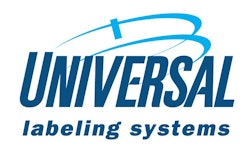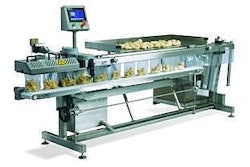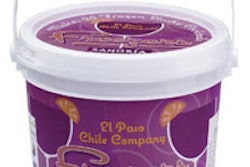Along with patient compliance, the growing global issue of counterfeit drugs can be a matter of life and death. Counterfeiting is such a thorny issue that the Food and Drug Administration already anticipates an increase in the sale of counterfeit or fraudulent treatments should the much-publicized avian flu emerge as a public health threat in the U.S.
According to a report on the www.fda.gov Web site, one of the ways the organization will continue to strengthen the safety and security of the U.S. drug supply “is to encourage pharmaceutical manufacturers to take advantage of new technologies that provide protective packaging and other features to ensure the product is both authentic and has not been tampered with.”
Earlier this year, the FDA announced “tremendous progress toward the development and implementation of a standard track-and-trace system using RFID for widespread use in the drug distribution chain. Significant advancements are also being made in developing an electronic pedigree (chain of custody) for drug products. Additionally, drug manufacturers are increasing their use of anti-counterfeiting technologies such as holograms, color-shifting inks, and covert markings on drug products and packaging.”
Medi-Flex’s Linda McBride points out that “preventing counterfeit drug products from reaching consumers is not a simple task, and the implementation of RFID is only part of the solution. Another part is the development and utilization of pedigrees that identify the path a drug product has taken from the manufacturer.”
Nancy St. Laurent of Lockwood Greene says, “RFID and other identification methods to prevent counterfeiting will affect packaging materials and equipment to handle RFID labeling. There are other methods that can be used, too, and I often hear about multi-layering of different methods for packaging materials.”
Outsourcing and contract packaging
Outsourcing of jobs to contract packagers (CPs) continues to be an important issue for many packagers, including those in the healthcare field. “I see continued outsourcing or contract packaging occurring due to the large number of start-up companies,” believes St. Laurent. “These are mostly biotech companies, but also pharmaceutical companies.”
She believes that although many CPs may have the equipment to handle existing product packaging, “that might not be the case with toxic drugs that require isolation technology, or where there are other sensitive or controlled drugs. In those cases, companies will probably build their own facility with dedicated equipment.”
RxPax’s Dana Guazzo adds, “In order to minimize costs, but still produce a quality product, pharmaceutical companies are increasingly relying on the specialized focus that contract packaging firms provide. Unfortunately, this doesn’t always address the lack of expertise available to support companies at the developmental level.”
Cardinal Health’s David Rudd anticipates that, “outsourcing will continue, especially in areas of the world where the effective labor rate is lower, whether these rates are actually lower or artificially supported by their respective governments.”
John White at Smith & Nephew Orthopedics believes outsourcing depends on a company’s “capacity issues, geographical location, core competencies, capital restraints, et cetera. A lot of energy has to be put into the selection of a contract packager. When we look at contractors, we involve a lot of Smith & Nephew expertise before we make any decisions.”
Packaging and personalized medicine
Personalized medicine is receiving media attention for its potential to treat disease through a person’s unique medical characteristics. If and when that becomes a reality is open to debate, but from a packaging perspective, individualized medicine packs the potential to revolutionize drug packaging and distribution.
St. Laurent predicts personalized medicine, “will have a tremendous impact on packaging operations. It will require innovative solutions if and when this becomes a reality. To develop personalized drugs and do it on a large scale could possibly create an entire new industry from what we know today.”
McBride sees, “Personalized packaging as a great opportunity for companies. Really, we already have it on the over-the-counter (OTC) analgesic side with the non-child-resistant cap directed towards the geriatric population.”
“In the orthopedic business,” White says, “we have long recognized that ‘one-size-fits-all’ isn’t true. We have been headed to a one-piece flow packaging operation. Our batches are small and our processes are flexible,” he continues. “I think that as personalized medicine becomes more of an issue, companies that have large, centralized, and automated packaging operations will be more affected.”
In a recent “letter to the editor” to Healthcare Packaging, a Pfizer retiree said, “the effect will depend on just how precise one’s medication will be personalized. Will a capsule have to be filled with a uniquely prescribed number of particles of the medication? Will an injectable be similarly dosed? Or, will this simply mean a greater number of strengths be made available? If it’s the latter, almost certainly contract packagers will be utilized. This destroys the efficiencies of any high-speed packaging operation.
“If unique dosing is required,” he stated, “a manufacturer or contract packager will have to make made-to-order medicines—and wow—what this will mean!”
Oil/resin pricing concerns
Personalized medicine may be making some headlines, but not nearly as many as those stemming from oil prices. Recent increases in resin prices were attributable to oil supply disruptions from hurricanes.
Rudd explains, “It is possible that the effects of Katrina and Rita will have a profound effect on the feedstocks that we rely on to make packaging. Recently, several major chemical companies announced that their capacity to manufacture polymers and plastics had been fundamentally affected. Some even announced that they were invoking the “force majeur” clause in their supply contracts. Beyond the obvious effects of this reduction in supply and the resulting increase in cost, this may lead to more subtle changes in the way packaging is sourced and made.”
He states, “The healthcare market is extremely competitive and price changes (primarily due to resin volatility) are difficult to pass on to customers. We work with our suppliers to establish pricing mechanisms that incorporate current and future resin market trends.”
St. Laurent comments that oil price volatility, “could finally make the U.S. look at changing the way it uses plastic. I have always been amazed at the difference in packaging philosophies between the U.S. and Europe. Europe uses far less plastic than we do. It also has other significant differences in sterile drugs. It provides a lot of sterile drugs in ampoules. The U.S. uses either glass vials with stoppers and aluminum seals, or glass syringes with stoppers. Europe uses much more ‘green’ packaging, such as [paper]board, which is cheaper and more biodegradable than plastic,” she believes.
Guazzo offers another perspective: “Forgetting the top-line cost of purchasing plastics, oil pricing and availability of plastic packaging has forced pharmaceutical firms to qualify alternative plastic resins for package component materials. This multifaceted process of re-qualification includes testing product for stability, filing regulatory submission changes, changing incoming component specifications, and the list goes on. So the monetary and resource drain to a company due to resin prices and availability can be enormous.”
Material and machinery advances
For this healthcare packaging forecast, respondents were asked to predict what equipment and material advances might occur in the near future. “The sealing technology for medical device sterile trays and pouches has greatly improved in recent years,” notes White. “Things like PLC controls, password protection of set points, better alarm systems, validation ports, and bar-code checks to match packaging components with machinery parameters has greatly enhanced quality in our sector of packaging. I think packaging equipment manufacturers have listened to our requirements and made great strides in these areas. I’m very encouraged by that,” he says.
McBride believes, “We’ll see more and more automation in the future, with less operator intervention. Also, we’ll see faster changeovers from one product to the next.”
Guazzo also offers an upbeat forecast, saying, “Advances in online package inspection and integrity testing are exciting. These include high-speed, noncontact ultrasound inspection technologies, light reflection technologies, and gas tracer techniques.”
St. Laurent seeks improvements in printing methods. “While there have been improvements in ink-jet, hot-stamping, and laser printing, the best solution is still out there,” she contends. She would like to see equipment that’s “easier to set up, change over, and operate. Companies are still inflexible in controls systems and adapting to customer requests for preferred components. Also, there are improvements to be made in overall design. Machines can be smaller, better constructed, and easier to clean.”
Rudd doesn’t “anticipate any breathtaking advances. I do expect continual incremental improvements facilitated by increased application of servo motors, improved control software, and a drive to reduce costs. I’d like to see lower-cost machines that will allow users to buy more machines for increased scheduling flexibility.”
On the materials side, Rudd says, “I expect that the development and acceptance of a better microbial barrier test will allow medical device manufacturers to make more informed decisions about materials used for sterilization vents.”
Opportunities, too
Cardinal Health’s engineer recognizes RFID’s potential. However, he says, “it’s difficult to see how RFID tags on individual medical devices such as gowns, gloves, or scrub brushes can be accomplished at the current cost. Perhaps there is merit employing the tags on the pallet, or even the case, but I believe we will have to wait for the technology to mature before RFID can be justified for low-cost sterile medical devices.”
There’s no question that healthcare packaging pros face pressures, but those challenges also present opportunities. New anti-counterfeiting technologies and printing and labeling efforts can all make a significant impact on healthcare in the U.S., if not globally.
Guazzo relates, “Companies are looking at more ways to improve patient compliance and reduce medication errors through single-use packaging.” Improved patient compliance has life-saving implications. She even sees opportunity when it comes to healthcare economics. “With skyrocketing healthcare costs, many are looking to packaging for solutions.”
Smith & Nephew Orthopedics’ White notes, “cost containment will continue to be a big focus for the medical device industry. With attention focused on rising healthcare costs, it is our responsibility to improve packaging costs and reduce the impact on the customer.”





























